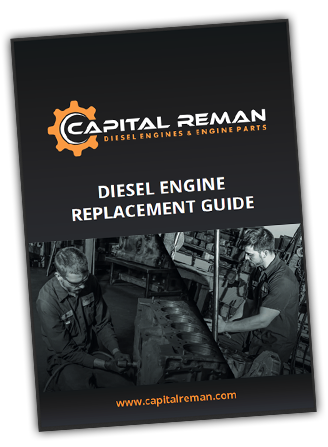The Nuts and Bolts of Diesel Head Gasket Failures
When we talk about diesel engines, we're often discussing workhorses of the automotive and industrial world—reliable, powerful, and built to last. But every so often, even the most robust diesels can find themselves sidelined, their power dampened by something as seemingly small as a blown head gasket. It’s not just a minor inconvenience; it's a hazard to your engine's performance and a significant dent in your wallet.
In this in-depth look at head gasket failure in diesel engines, we’ll guide you through the most common culprits behind every unfortunate 'pop': Overheating, surface imperfections, o-ring debacles, torquing troubles, and damaged gaskets.
Overheat To Overhaul
It's no secret that diesel engines can run hot, but that very quality, when pushed too far, can lead to catastrophic damage. The leading cause of head gasket failure in diesels is unequivocally high temperatures. Running an engine hotter than its design specifications can cause the metal components to expand beyond tolerances. When this happens, the head gasket, which is responsible for maintaining a tight seal between the cylinder head and the engine block, can become compromised. Once the gasket fails, you can experience a myriad of problems, from coolant and oil mixing in the combustion chamber to reduced engine compression.
High heat can be caused by a variety of issues, including faulty thermostats, blocked coolant passages, or even a lack of oil to help dissipate the heat. Universally, inadequately maintained cooling systems or pushing vehicles beyond their known limits will be the likely suspects. The takeaway? Engine temperature gauges are not arbitrary decorations; they are essential tools to prevent overheating. Pay attention to them!
Surface Quality
Your engine block and cylinder head must be prepared/inspected surfaces for the head gasket to do its job effectively. Any imperfections in these surfaces can lead to an ineffective seal, eventually resulting in a head gasket failure. Even the tiniest scratch can grow under high pressure and heat, causing a warp in the surface area and further compromising the gasket's seal.
Proper machining of the surfaces during engine rebuilds or maintenance is essential. It's also crucial to monitor for flaws that can develop over time, especially in older engines. Regular checks for even seemingly innocent leaks can be a signal that something is amiss.
O-Rings
For the uninitiated, O-rings are rubber seals used in the assembly of engine parts. They're designed to maintain the integrity of the head gasket, especially in regions prone to high temperatures and pressure. Over time, these o-rings can deteriorate, dry out, or simply be defective from the get-go, leading to a compromised head gasket.
The solution here is proactive replacement and the use of high-quality, heat-resistant o-rings. It’s an inexpensive repair that’s often overlooked at the risk of the far more costly head gasket failure.
Torque
The torque of a cylinder head – the force it takes to twist the cylinder head down onto the block – is critical. Under-torqueing can create a weaker seal and over-torqueing can stretch the head bolts, risking breakage and consequently, an uneven seal. Both of these scenarios are termites to the foundation of your diesel’s head gasket.
This issue, while largely related to the installation process, can also be exacerbated by the quality of the head bolts. Using old, worn, or the incorrect bolts can lead to imbalances in the torque and spell doom for your gasket. It’s not just about how tight; it’s about how tight with the right tools, materials, and techniques.
Gaskets
Sometimes the problem isn’t what the gasket faces, but what the gasket is. A low-quality or incompatible gasket material will deteriorate under diesel-specific conditions, such as higher compression ratios and temperatures. This is a silent killer; you may not notice an immediate issue, but when the gasket finally gives, you'll be facing swift and severe repercussions.
This is particularly concerning in light of the widespread use of aftermarket parts in maintenance and repairs. While often cost-effective, they can lead to disasters just waiting to happen.
Time To Act
Prevention, as always, is better than cure. Regular maintenance and inspections, proper installation procedures, using high-quality components, and respecting the limitations of your engine’s design are your best allies in the fight against head gasket failure.
For those already wading in the depths of a gasket issues, the most important thing is to not ignore it. Act on it promptly and with the right expertise. A little maintenance now might just save you from a full-blown engine overhaul later.
In the grand scheme of engine intricacies, the head gasket seems deceptively simple, yet its failure can be devastating. It's a reminder that in the world of diesel, every connection and component—no matter how small—plays a significant role in the engine's longevity. Stay vigilant, stay informed, and stay on the road by nipping head gasket issues in the bud before they blossom into wallet-siphoning monsters.



